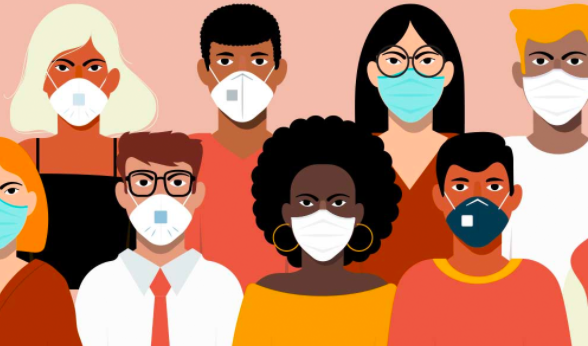This content has been archived. It may no longer be relevant
Employers are facing new challenges with how to handle COVID-19 in their workplaces and many are asking about liability issues. Additionally, employees want to know what level of privacy they are entitled to as employers start more stringent tracking and tracing. Since these issues are hot, we asked an authority to provide perspective.
What follows is an edited interview with Attorney Jeffery J. Worley. Jeff is a partner at Gibbel, Kraybill & Hess. He brings extensive experience counseling employers in the context of employment–related litigation and litigation avoidance.
First, are you hearing questions from clients about COVID liability?
Yes, I am. A typical question is, “I have an employee who has tested positive for COVID, what do I do…” I’m also getting questions from clients who have had OSHA complaints filed against them. Many have questions regarding compliance with state and federal regulations.
What level of liability do employers have related to COVID?
At this point it is not clear. Personally, I haven’t seen any litigation yet. I don’t know for sure how courts are going to rule on this.
But here’s what I think the landscape will look like. On the one hand, you have employers who try to follow state and CDC guidelines. They have a mask mandate, they do temperature checks, they track employees who are sick, etc. And for these employers, as long as they are legally allowed to operate, it would be very hard for an employee to show that the employer is liable or otherwise responsible for an employee getting COVID.
On the other hand, you have an employer who is clearly not following CDC protocols and may even be demonstrating that they don’t care about an employee’s health. There were allegations of this, for example, in meat packing plants. There are allegations that employers knew that employees were sick and continued to require sick employees to show up to work. They had no mask requirements, no contact tracing, etc. In cases like this, the employer could be held liable because they disregarded the rules and failed to follow the CDC protocols. Likely this would be considered grossly negligent.
Is OSHA investigating employee claims?
Yes. Under the American Rescue Plan of 2021, money has been included to cover OSHA enforcement. One hundred million dollars has been reserved for OSHA under the American Rescue Plan. What I’ve seen thus far is limited actions by OSHA. I have not had clients subjected to site inspections; however, OSHA has issued requests for documentation as to CDC compliance. To be clear, OSHA is not just investigating injuries; they are looking to prevent injuries. Violations, even if there are no injuries, could result in penalties and fines.
What do employers need to know about Worker’s Compensation claims related to COVID?
It’s going to be contingent on insurers and how courts decide these cases. An employee will first have to demonstrate they got sick at work. After that, it will depend on how courts view this. As a past example, catching the flu did not qualify as a compensable workers compensation claim.
So, whether COVID is viewed as a workplace injury is unknown right now, and it will vary by state. What we do know is that there is currently no legislation that provides immunity for employers. So it does leave it open for litigation to be brought.
What level of privacy should employees expect at work?
They should expect that the information they provide about their health status is confidential. The Americans with Disabilities Act (ADA) explicitly states that employee health data needs to remain confidential. It is separate from all other employee health
information-protected under lock or password.
What health information is considered confidential and protected by law?
Everything. Temperature screenings. Reports of being exposed. Incidents of illness. Those are all confidential.
Why is tracking employee information on spreadsheets not a good idea?
It’s not a good idea because every employee’s information needs to be stored separately. By law it cannot be stored in their personnel file. It can’t be intermingled with information about other employees. This information has to be kept confidential and may need to be destroyed later. If this is not done it’s likely a violation of the ADA.
What else would you want an employer to know about these issues?
There are a lot of dimensions to this issue that employers need to think about. In addition to the legal considerations, issues like productivity, work stoppages, and employee morale are important to consider. The bottom line is that employers need to be able to demonstrate that they are following the rules and hopefully in the least disruptive and intrusive way possible.
Advanced Metrics has recently launched software that enables employers to manage COVID-19 outbreaks. It tracks employee symptoms and status, it enables employees to report exposure, and it provides dashboard reporting to help manage outbreaks and plan for safe returns to work. The software is called QUALO Healthy Pathways. Want a demonstration? Contact Advanced Metrics and arrange one today.

